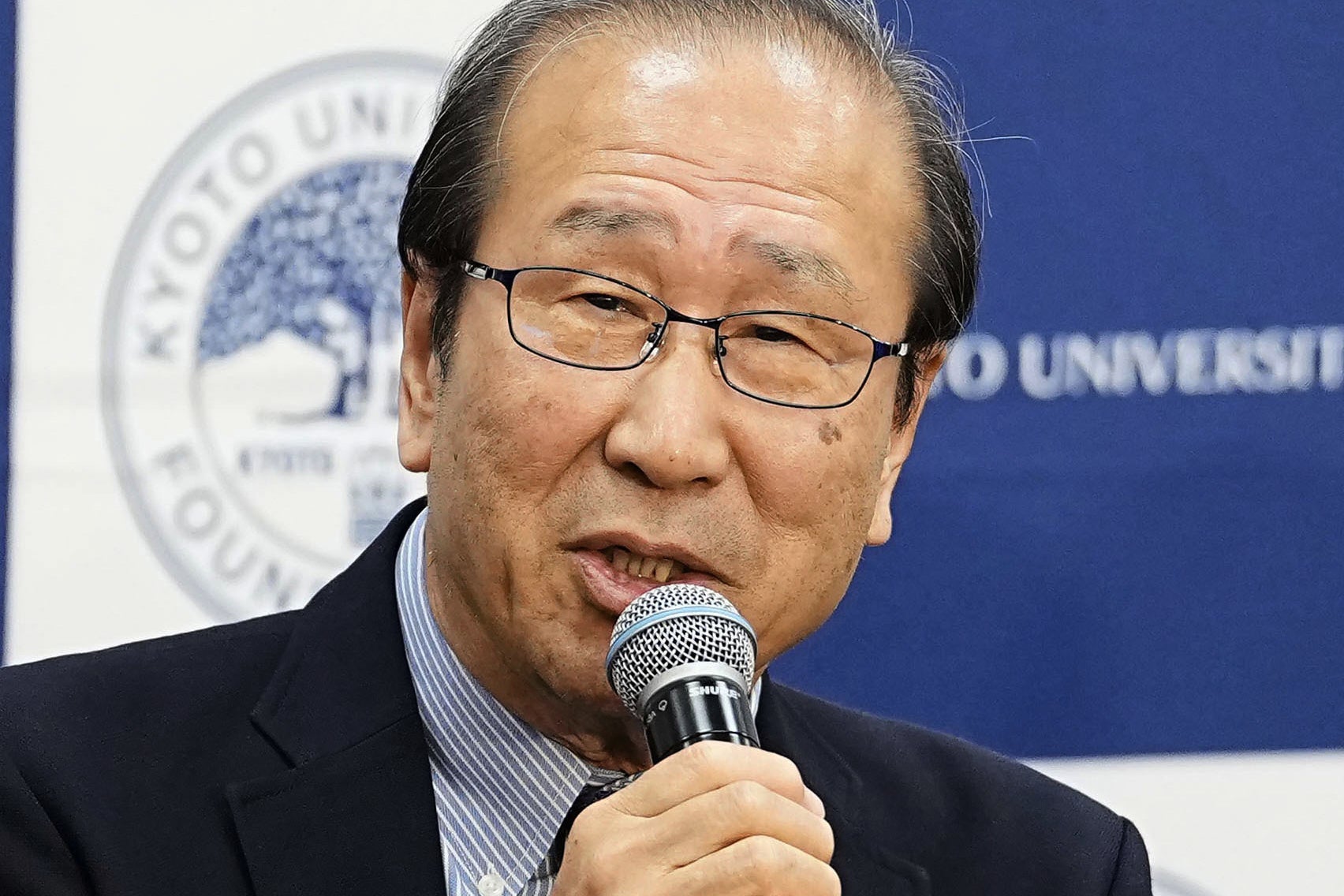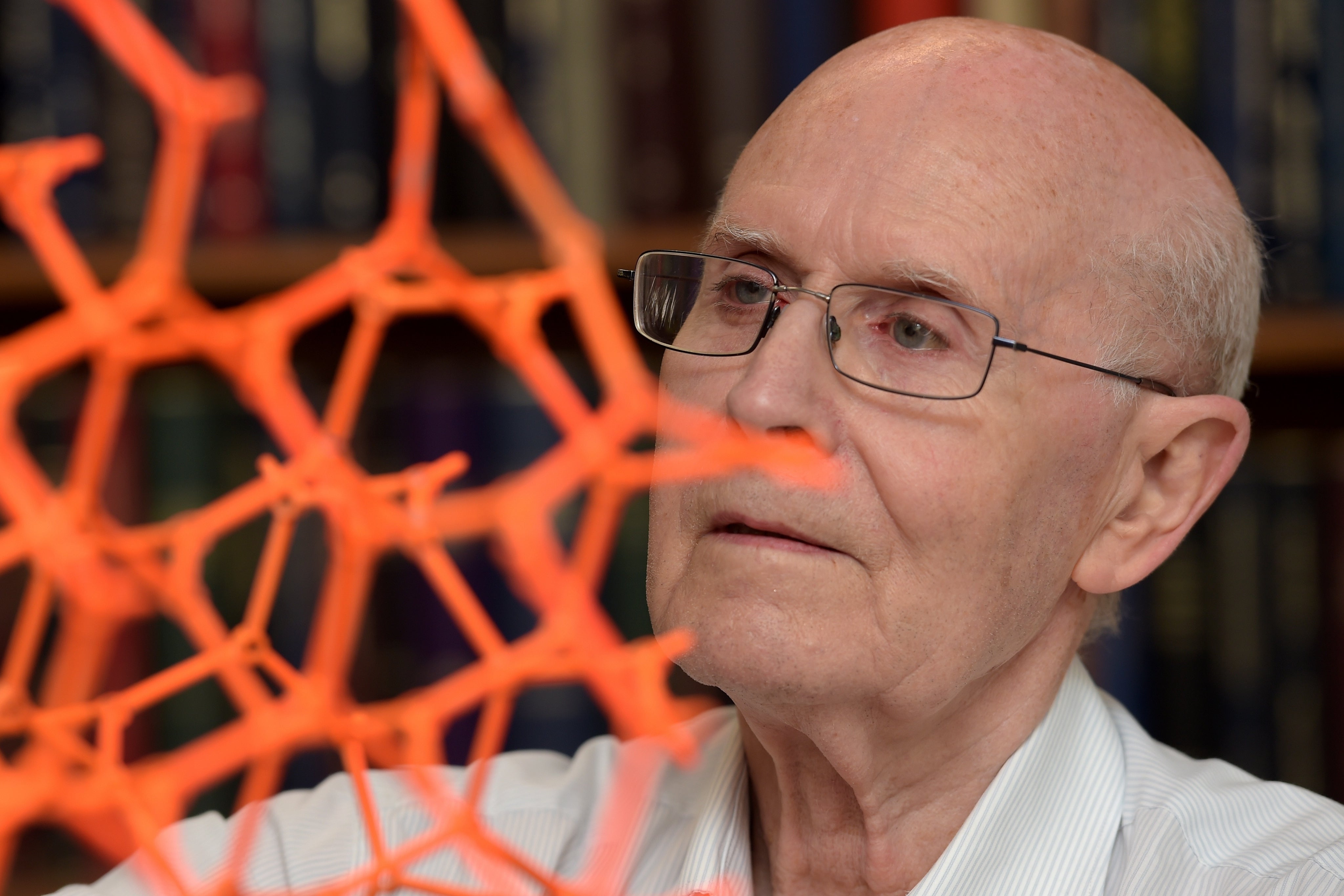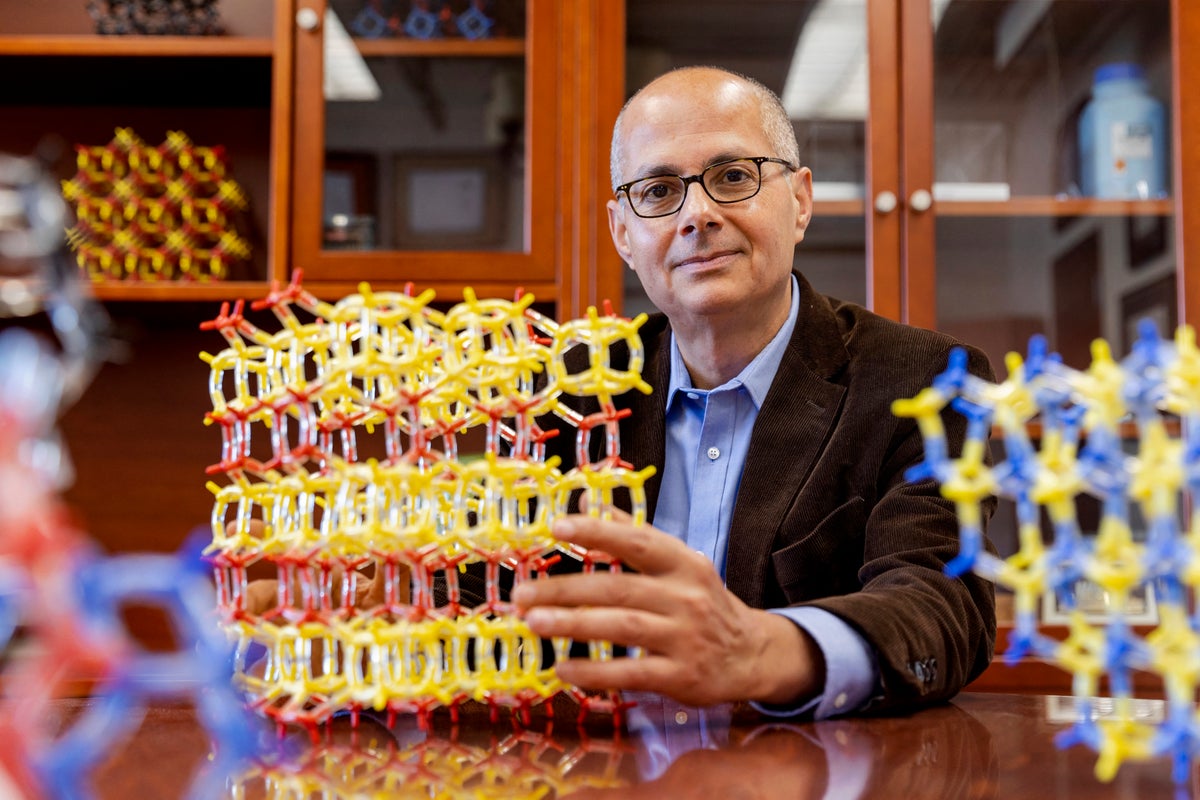The Nobel Prize in Chemistry has been awarded to Susumu Kitagawa, Richard Robson and Omar M Yaghi for their pioneering development of metal-organic frameworks (MOFs), a revolutionary material with the potential to tackle some of the world’s most urgent problems.
These innovative structures, which one expert likened to Hermione Granger’s enchanted handbag from the Harry Potter series, possess an extraordinary capacity to absorb and contain gases.
Much like the fictional accessory, or indeed the timber frame of a house, MOFs are deceptively small externally but boast a vast internal surface area, according to Olof Ramstrïm, a member of the Nobel Committee for Chemistry. This unique molecular architecture could be instrumental in capturing atmospheric carbon dioxide or extracting water from arid desert air.
The three chemists, though working independently, built upon each other’s breakthroughs, with Mr Robson initiating the foundational research in 1989.

“Metal-organic frameworks have enormous potential, bringing previously unforeseen opportunities for custom-made materials with new functions,” Heiner Linke, chair of the Nobel Committee for Chemistry, said in a news release.
The committee cited the potential for using the frameworks to separate “forever chemicals” from water.
Perfluoroalkyl and polyfluoroalkyl substances, or PFAS, are a group of chemicals that have been around for decades and have now spread into the air, water and soil. They are also referred to as “forever chemicals”.
Hans Ellegren, secretary-general of the Royal Swedish Academy of Sciences, announced the prize in Stockholm on Wednesday. It was the third prize announced this week.
Mr Robson, 88, is affiliated with the University of Melbourne in Australia, Mr Kitagawa, 74, with Japan’s Kyoto University and Mr Yaghi, 60, with the University of California in Berkeley.
Mr Kitagawa spoke to the committee, and the press, over the phone on Wednesday after his win was announced.
“I’m deeply honoured and delighted that my long-standing research has been recognised,” he said.

The 2024 prize was awarded to David Baker, a biochemist at the University of Washington in Seattle, and to Demis Hassabis and John Jumper, computer scientists at Google DeepMind, a British-American artificial intelligence research laboratory based in London.
The three were awarded for discovering powerful techniques to decode and even design novel proteins, the building blocks of life. Their work used advanced technologies, including artificial intelligence, and holds the potential to transform how new drugs and other materials are made.
The first Nobel of 2025 was announced on Monday. The prize in medicine went to Mary E Brunkow, Fred Ramsdell and Dr Shimon Sakaguchi for their discoveries concerning peripheral immune tolerance.
Tuesday’s physics prize went to John Clarke, Michel H Devoret and John M Martinis for their research on the weird world of subatomic quantum tunnelling, which advances the power of everyday digital communications and computing.
This year’s Nobel announcements continue with the literature prize on Thursday. The Nobel Peace Prize will be announced on Friday, and the economics prize next Monday.
The award ceremony will be held on 10 December, on the anniversary of the death of Alfred Nobel, who founded the prizes. Nobel was a wealthy Swedish industrialist and the inventor of dynamite. He died in 1896.



